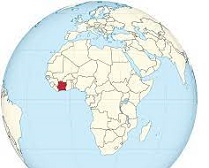Côte d’Ivoire and the International Monetary Fund (IMF) have reached a staff level agreement on a package of reform measures for 2024-26 in line with the Resilience and Sustainability Facility (RSF) program objectives for an amount of about US$ 1.3 billion, or 150 percent of quota).
The RSF program request will be submitted for approval to the IMF Executive Board in the coming weeks, according to the information from the IMF. “The RSF program reviews will coincide with reviews of the Extended Credit Facility (ECF) and Extended Fund Facility (EFF) arrangements approved in May 2023 (for an amount of about SDR 2,601.6 million, or 400 percent of quota) to support the government’s economic program over 2023-2026 for macroeconomic stability and the structural economic transformation to transition Côte d’Ivoire towards an upper middle-income country,” said Mr. Olaf Unteroberdoerster, IMF mission head who virtually held meeting with Côte d’Ivoire authorities from January 23 to February 14, 2024.
“Côte d’Ivoire and its economy are exposed and vulnerable to climate change, especially in the agricultural sector and other economic activity sectors in coastal areas. At the same time, greenhouse gas emissions and pollution in urban areas are increasing and pose additional challenges. Based on these findings, the authorities are committed to reducing the harmful effects of climate change and have implemented several government initiatives,” he said.
“Discussions focused on the importance of mitigating climate change, by strengthening adaptation and mitigation efforts, particularly in the areas of agriculture, transport, and infrastructure, and public financial management.”
He said: “The RSF program will aim to improve resilience to climate change by implementing a set of ambitious reform measures to address the identified challenges, which are: (i) the integration of climate into public financial management; (ii) strengthening the governance of climate policies; (iii) reducing exposure and vulnerability of the agricultural sector; (iv) increasing green and sustainable financing; (v) reducing vulnerability to flooding and coastal erosion, and (vi) reducing greenhouse gas emissions.” Technical assistance from partners including the IMF, the World Bank Group, the African Development Bank, the European Unions, and bilateral partners should continue to play an important role in meeting these challenges.”

